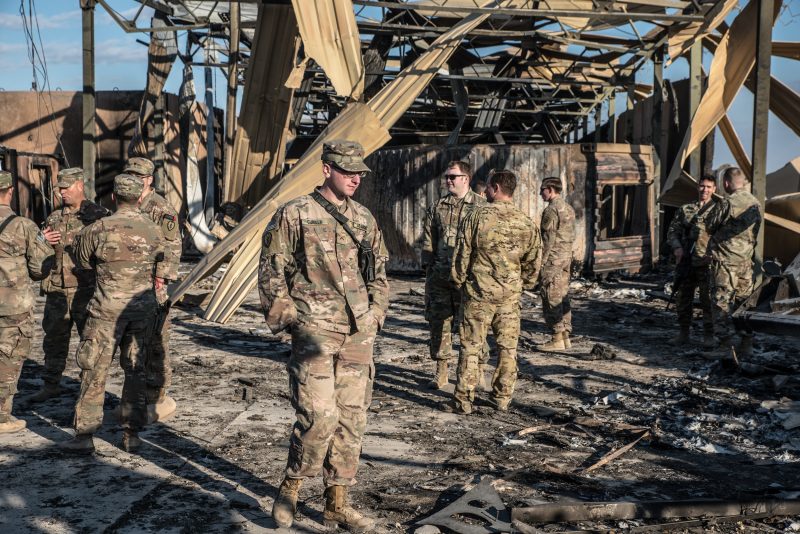Former president Donald Trump once again downplayed the traumatic brain injuries suffered by American soldiers in an Iranian missile strike on an air base in Iraq in 2020, describing them as “a headache,” in response to a question at a campaign event in Milwaukee on Tuesday.
Trump’s repeated dismissal of the attack’s effect on U.S. troops — in 2020 he described the traumatic brain injuries as “not very serious” — prompted a response from Democratic vice-presidential nominee Minnesota Gov. Tim Walz during Tuesday night’s vice-presidential debate.
Responding to a question about escalating tensions in the Middle East, Walz took aim at Trump: “When Iranian missiles did fall near U.S. troops and they received traumatic brain injuries, Donald Trump wrote it off as headaches.”
Taking questions from reporters earlier on Tuesday, Trump was asked if he should have been tougher on Tehran after more than 100 U.S. troops suffered traumatic brain injury in a missile attack on the Ain al-Asad air base in Iraq in 2020.
“So first of all, injured. What does injured mean? Injured means — you mean because they had a headache? Because the bombs never hit the fort,” Trump responded. “So just so you understand, there was nobody ever tougher on Iraq,” he added, appearing to misspeak by saying Iraq instead of Iran.
Wow — in response to a question about Iran injuring US 100 troops in 2020, Trump suggests they weren’t really hurt
‘Because they had a headache?’
He then says ‘Iraq’ when he means ‘Iran’ and attacks the report who asked him the question pic.twitter.com/IyzhNa2DKP
— Aaron Rupar (@atrupar) October 1, 2024
He then attacked the journalist who asked the question.
“And if you were a truthful reporter, which you’re not, you would tell the following: None of those very accurate missiles hit our fort,” Trump said. “They all hit outside, and there was nobody hurt other than the sound was loud and some people said that hurt ‘em, and I accept that.”
In the days following the 2020 attack, Trump, who was president at the time, appeared to downplay the injuries. “I heard that they had headaches and a couple of other things,” he said in 2020. “But I would say, and I can report, it is not very serious, not very serious.”
Iran fired 15 ballistic missiles in the January 2020 attack launched in retaliation for the U.S. killing of Iranian military commander Qasem Soleimani. Eleven missiles, about 40 feet long and carrying a 1,600-pound warhead, slammed into the air base.
The impact of the attack left craters up to 30 feet wide and the incident brought the United States and Iran to the brink of war, The Washington Post reported.
Staff Sgt. Rebecca McMillan, an Army intelligence analyst injured in the attack, said in late 2021 that she heard a ringing in her ears, her head felt foggy and her eyes went blurry. She was later diagnosed with a brain injury and continued to deal with post-traumatic stress, migraines and insomnia linked to the attack.

